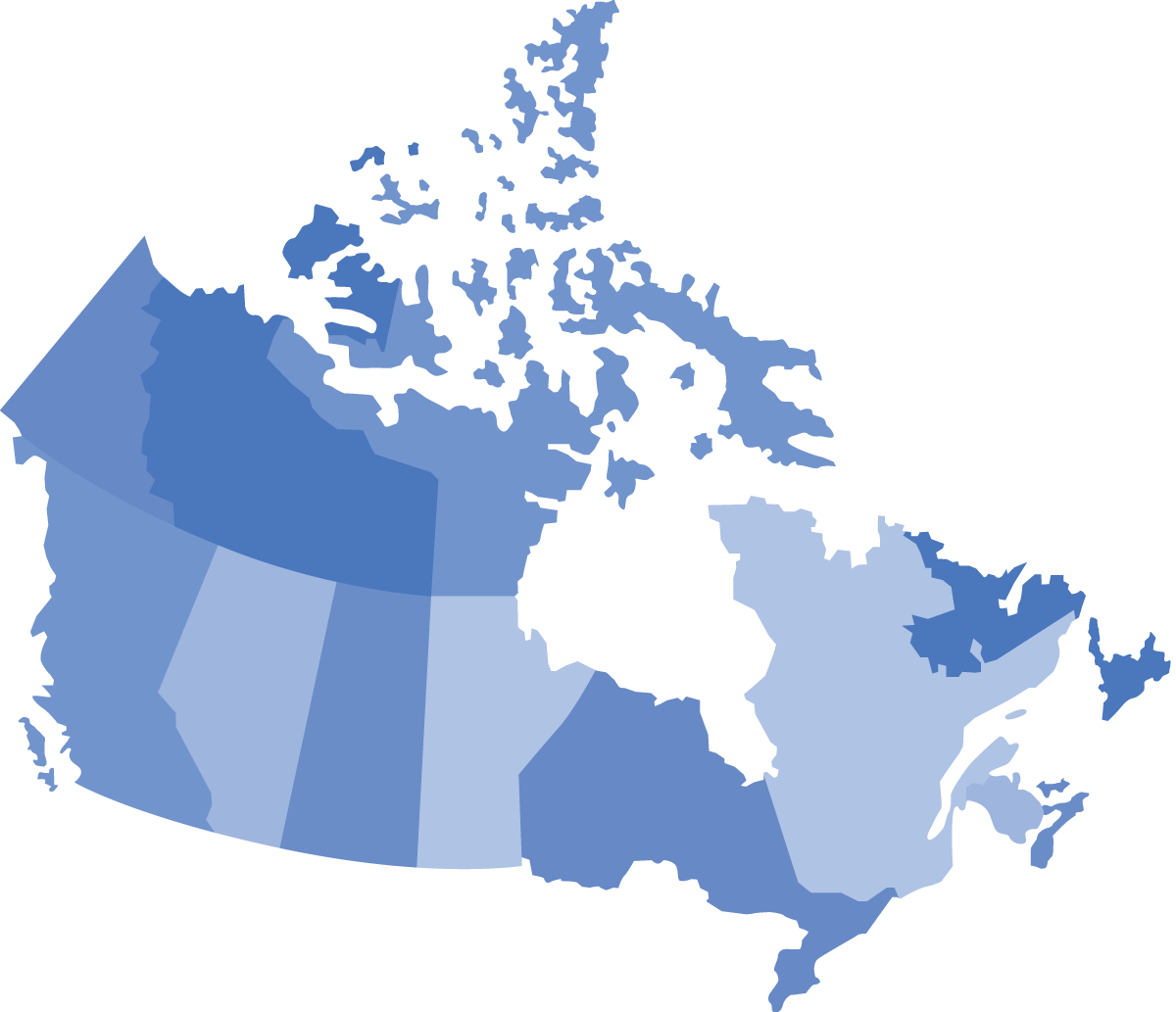-
Understanding Grief ›
-
- Truths about grief
- What grief looks and feels like
- Common challenges with grief
- Grieving before the loss
- Ideas for living with loss
- Grief triggers
- How long grief lasts
- How the loss affects families and others
- When life starts to get better
- Special dates
- Rituals, funerals, and memorials
- Do I need more help?
- Prolonged grief
-
-
Grieving a Death ›
-
Non-death Loss ›
-
Supporting Someone ›
-
Professionals & Volunteers ›
-
Resources & More ›
When life starts to get better
You may feel surprised and even challenged by unexpected changes or improvements in your mood or outlook on life. For example, you may feel guilty about your life moving forward without the person who died. It may help to know that, for many people, a time comes when they start to feel better.
How does “feeling better” look?
- Your grief is not as sharp and not as constant
- You are more accepting of the death
- You have more energy
- You are more able to make decisions
- You are starting to enjoy life again
- You are making new plans
- You are more open to change
How can I keep the person who died in my life?
Relationships do not end when someone important to us dies. They continue in a different way.
- At first, it is common to focus on what you have lost. It may help to think about important experiences you shared and how your bond remains.
- You may want to reflect on the person’s interests, views, and values and to identify ways they might continue to guide and influence you.
- You may recognize that you continue to be influenced by the person who died, as you remember their ways, views, and values.
Am I ready to start a new relationship?
After some time, you may start to think about companionship. It may help to consider:
- It is possible to enjoy a new relationship and remain connected to the person who died.
- A new relationship will require time and energy, and can bring hope and joy.
- If you have children, be aware of and sensitive to their needs when introducing a new person into your life.
“It took me some time to feel okay enough to even consider dating … I am slowly learning that I can still be loyal to my deceased husband, and also be happy with another.”
If you feel overwhelmed or “stuck” please talk to a health professional or trusted leader in your community such as a doctor, chaplain, nurse practitioner, social worker or school administrator. These trusted people may be able to connect you with appropriate programs, resources, and other forms of needed support such as grief counselling or medical care. You may be able to access counselling services if you have an Extended Health Plan, or through an employee assistance program. It will be important that they have experience in grief counselling. If you have thoughts of or plans to harm yourself or others, go to your nearest Emergency Department, call your local Crisis Line, or call or text 9-8-8 if you are in Canada. It is essential that you reach out for help.
See also:
- Do I need more help?
- MyGrief.ca Module 8 - Do I need more help and where to find it
As you start to move forward with your life, you may have conflicting and confusing feelings. Often your relationship with the person who died continues as a kind of internal connection. In time, you may be ready to start new relationships. You may need to be prepared for your family to have difficulty adjusting.
See also:
- MyGrief Module 9 - When life starts to get better
Video Gallery
Resources
This section of MyGrief.ca looks at the obstacles to looking after ourselves and makes suggestions for self care.
This section of MyGrief.ca looks at the common questions and experiences of people moving through grief, and suggests ways to adapt to life without the person who died.
Includes ideas and activities to help youth and young adults live with and manage their grief including bullet journals and grounding exercises.
A page for young people that includes videos, blogs, music playlists, and links to other helpful resources to help support young people in their grief.
Provides ideas for different ways to cope with grief including cooking, art, music and more.
Frankl talks about how suffering cannot be avoided, but we can choose how we cope with it, find meaning, and move forward.
Bereavement activity journal for children and teens. The goal of this journal is to offer bereaved children a resource that they can use to help process their grief. These journals are available for p ... Read more
Have a grief and loss page on the website. Have summaries on what is grief, how long it lasts, ways to feel better, and how to help those who are grieving. Includes a video gallery of individuals shar ... Read more
Includes lists of books for youth that touch on topics of death and grief in some capacity. Have subcategories including books for littles, kids, teens, death as natural, death as a metaphor. Also inc ... Read more
Resources for different kinds of grief (general, death of a child, spouse/partner, youth, children, PAIL, sibling, suicide, parent/grandparent, substance abuse, medical assistance in dying, during the ... Read more
Have articles with advice and stories to help youth through their grief, many written by other youth. Also have a podcast called Grief in Common for those between 13-25, which has youth talking about ... Read more
Offer a Pathways Grief Support Program for those who had a child cared for by Sick Kids. Have pages for grief resources, including books, which are divided into sections for parents, children 12+, Fre ... Read more
Stephen Colbert describes his experience with grief and what can be learned from grieving.
Offers selfcare tips for someone who is grieving, caring for both your emotional and physical self.
Lists ways to cope and process grief that don't involve talking to people as this is not how everyone wants to process the loss. Suggestions include journalling, reading, drawing, and other artistic e ... Read more
Pema Chodron draws from traditional Buddhist guidance and provides considerations contrary to what one might expect when facing some of life's most difficult situations.
The Dougy Center's first journal specially created for grieving teens. Whether a teen has experienced the death of a parent, sibling, grandparent, close friend, or other family member, this Deconstruc ... Read more
Provides ideas for different ways to cope with grief including cooking, art, music and more.
Offers selfcare tips for someone who is grieving, caring for both your emotional and physical self.
Lists ways to cope and process grief that don't involve talking to people as this is not how everyone wants to process the loss. Suggestions include journalling, reading, drawing, and other artistic e ... Read more
Frankl talks about how suffering cannot be avoided, but we can choose how we cope with it, find meaning, and move forward.
Pema Chodron draws from traditional Buddhist guidance and provides considerations contrary to what one might expect when facing some of life's most difficult situations.
This section of MyGrief.ca looks at the obstacles to looking after ourselves and makes suggestions for self care.
This section of MyGrief.ca looks at the common questions and experiences of people moving through grief, and suggests ways to adapt to life without the person who died.
Includes ideas and activities to help youth and young adults live with and manage their grief including bullet journals and grounding exercises.
A page for young people that includes videos, blogs, music playlists, and links to other helpful resources to help support young people in their grief.
Have a grief and loss page on the website. Have summaries on what is grief, how long it lasts, ways to feel better, and how to help those who are grieving. Includes a video gallery of individuals shar ... Read more
Includes lists of books for youth that touch on topics of death and grief in some capacity. Have subcategories including books for littles, kids, teens, death as natural, death as a metaphor. Also inc ... Read more
Resources for different kinds of grief (general, death of a child, spouse/partner, youth, children, PAIL, sibling, suicide, parent/grandparent, substance abuse, medical assistance in dying, during the ... Read more
Have articles with advice and stories to help youth through their grief, many written by other youth. Also have a podcast called Grief in Common for those between 13-25, which has youth talking about ... Read more
Offer a Pathways Grief Support Program for those who had a child cared for by Sick Kids. Have pages for grief resources, including books, which are divided into sections for parents, children 12+, Fre ... Read more
Stephen Colbert describes his experience with grief and what can be learned from grieving.
Bereavement activity journal for children and teens. The goal of this journal is to offer bereaved children a resource that they can use to help process their grief. These journals are available for p ... Read more
The Dougy Center's first journal specially created for grieving teens. Whether a teen has experienced the death of a parent, sibling, grandparent, close friend, or other family member, this Deconstruc ... Read more


